- Home
- Vicki Delany
Murder at Lost Dog Lake
Murder at Lost Dog Lake Read online
Murder at Lost Dog Lake
VICKI DELANY
Copyright Vicki Delany 2011
Smashwords Edition Published 2011
Carrick Publishing 2011
ISBN: 978-0-9868633-6-3
Smashwords Edition, License Notes:
This e-book is intended for your personal enjoyment only. This e-book may not be sold or given away to other people. If you did not purchase this e-book, or it was not purchased for your use only, then please return to Smashwords and purchase your own copy. Thank you for respecting the hard work of this author.
“It’s a crime not to read Delany”. London Free Press.
Vicki Delany is one of Canada’s most prolific crime writers. She writes everything from standalone novels of psychological suspense such as Scare the Light Away and Burden of Memory, to the Constable Molly Smith books, a traditional village/police procedural series set in the British Columbia Interior, including In the Shadow of the Glacier and Among the Departed, to a light-hearted historical series, Gold Digger and Gold Fever, set in the raucous heyday of the Klondike Gold Rush.
In a starred review of Winter of Secrets, Publisher’s Weekly said: She uses a bare-bones style, without literary flash, to achieve artistry as sturdy and restrained as a Shaker chair. And Library Journal gave Among the Departed a starred review saying: “Her exceptional ability to create characters, both realistic and sometimes creepy, makes this another terrific addition to her outstanding body of work.
Chapter 1
Day 8: Mid-day.
“Someone’s missing.” With a curse Craig tossed a heavy pack beside the first canoe and shouted at everyone to stand still. A gust of storm-driven wind grabbed his words the second they were out of his mouth and, full of malicious intent, whisked them away.
He tried again. This time making a cup of his hands, he held them up to his mouth and screamed, “Stay where you are. Someone’s missing.”
Wet, miserable faces looked at each other, then back at Craig. One by one everyone began to count. There should be eight of us, but only seven were standing on the rocky, little beach, huddling together as the storm raged all around. Rachel whimpered at every flash of lightening and every crash of thunder.
The sky lit up over the lake, illuminating the angry waves and rolling white caps. So close you couldn’t take breath between the light and the noise, a crash of thunder had us all cringing into our shoulders, as if expecting a blow to fall from the heavens at any second. Rachel screamed. I was getting excessively tired of Rachel and considered giving her something to scream about, as my mother used to say.
“For God’s sake.” Craig’s voice sounded in my ear. “Who isn’t here?”
Rachel forgotten, I counted the small huddled group again, hoping that I had been wrong the first time. Still only seven. I looked around the mist-shrouded clearing, peering through the sheets of rain running in torrents under my rain hood and into my eyes. I wiped my forehead with the back of my hand. Didn’t do much good, one was as wet as the other. And counted once again: only six, seven, including myself.
Craig climbed up onto the rocks behind the beach where we had dumped the canoes and packs. He slipped on the wet ground and almost lost his footing but his thick Teva sandals held and he nimbly made the ledge.
“Who’s not here?” he screamed into our wet and cold faces. We all shrugged and peered at each other.
Although it was early afternoon, the sky, covered with thick, rain-engorged storm clouds, hung overhead as black as midnight. Rain fell cold and hard, like a shower that has that minute run out of hot water. I wanted to reach out and pull back the curtain, step out into warm, moist bathroom air, wrap myself in a white terrycloth robe and rub my hair dry with a fluffy, thirsty towel. Instead I peered under my neighbor’s hood and tried to make out the features. Dianne.
We all were wearing nearly identical yellow raincoats. It caused much laughter when we realized that we must have shopped at the same sale. It didn’t seem funny now, as I counted once again and tried to determine who was missing.
“Stand still,” Craig said. “Who isn’t here?”
Dianne looked about. “Richard, where is Richard?”
“Richard,” Craig yelled into the storm and back down the trail.
We all started shouting at once, “Richard, Richard.” Two yellow-coated shapes broke out of the circle and started back the way we had come.
Craig jumped down from the rocks, ran after them, and grabbed at their sleeves, pulling them to a stop. “Don’t go running off half-cocked like that,” he shouted. “We don’t want to lose anyone else.”
Unsure of what to do, the rest of us moved closer together. Only Rachel stood apart, arms wrapped tightly around her chest, face buried into her neck, still whimpering and emitting little shrieks at every clap of thunder or flash of lightening.
“Did anyone see Richard on the portage? Did anyone see him leave the trail?” Craig bellowed the questions into our faces.
“Thought he was in back of me,” Barb shouted. Her face was hidden in the folds of the rain hood, but the deep voice and strong English accent were instantly recognizable. “He helped me load my pack onto my back, and then he picked up one for himself. I assumed he followed me.”
“Anyone else?”
Shaking my head, I glanced at the group. Did I look as blank as the rest of them?
Craig nodded to me. “Leanne, you come with me. We’ll go back and look for him. The rest of you, tilt these canoes and store the packs under them. Then try and find any bit of shelter you can, but right here. No one is to leave the beach for any reason. Stay together. Do you hear me? I don’t want to lose anyone else.” He looked at them all, one at a time, forcing the miserable little group to acknowledge the order.
A bolt of lightning flashed into the dense woods behind us. Thunder clapped an instant response and we heard the unmistakable crack of old wood as a dead tree broke and crashed into the undergrowth. Rachel screamed and waved her hands in the air, as if they were beyond her control. “I want to go home. I want to go home. We’re all going to be killed out here in this God-forsaken place.”
“Will you shut up, you stupid woman. I’ve had about enough of you.” Craig’s composure broke at long last. Rachel closed her mouth in mid-scream and stared at him in astonishment.
He ignored her and glared at Joe instead. “Get the canoes overturned and all the equipment stowed underneath them. And keep her from running away. Though God knows we’d be better off if she did.”
Craig signaled me, and we took off at a light trot back down the trail. “Damn fools,” he mumbled angrily. “Some people should stay in the city where they belong.”
There was nothing I could say to that, so I said nothing.
The ground was wet and slippery, very, very slippery. I kept my head down, focusing all my attention on maintaining my footing. I watched Craig’s Tevas moving rhythmically up the path and the wet, flapping blur of his purple raincoat and willed myself not to fall. We were both shouting Richard’s name as we ran but it was doubtful that that anyone not directly in our path could hear the panic-tinged words.
I skittered on a wet rock and pitched forward, throwing my hands out in front to break the fall. A shooting pain lanced up my arm as my right wrist took the force of the impact. Gasping with the shock and pain, I sunk to the ground. Rainwater immediately found its way into my khaki hiking shorts, but I wasn’t too concerned: nothing could make them any wetter than they were already.
Craig came back and held out a hand. I pulled myself up with my left arm.
“You all right?” He looked me up and down.
“My dignity is hurt more than anything else.” I lied and tried to keep the pain out of m
y face. He didn’t need anyone else to worry about right now.
“If he left the trail, we’ll never be able to find the way. Can’t see more than a foot off the path. Damn fool.” Craig wiped rain from his eyes. The strain had etched delicate lines around his mouth.
“I’m sure he’s sitting at the portage, perfectly happy waiting for us to come back so he can complain about the weather.” I tried to sound cheerful. I failed.
We proceeded with a bit more care, watching our footing as well as the sides of the path. We called out as we walked, but received no response from anything other than the wind and the rain.
We reached the starting point of the portage with no further incident and no sign of Richard. All the canoes, packs and assorted odds and ends were gone, carried on our heads and our backs to Lost Dog Lake.
“Maybe the jerk left the path for a whiz in the woods,” Craig said. “Probably with the others by now. Christ, I hope they don’t all come traipsing down the trail like bunnies on a picnic, looking for us.” He pulled a bit of worn tissue out of his pocket and wiped at the rainwater dripping off the end of his nose.
He crumpled the useless piece of tissue into a ball and tossed it onto the path. Only then did I understand the depth of his despair; like all guides in the Park, Craig was religious in his respect for the tender environment. Everything carried in was to be carried out again. No exceptions.
“Let’s go back a bit more slowly,” I suggested. “Perhaps he took shelter under a tree off the path. And then with all the noise out here, he didn’t hear us calling.”
We turned and retraced our steps, back down the rough portage trail. Even in the short time since we first walked the path, the storm had done considerable damage. Broken branches and dead tree limbs littered the trail. My raincoat was a good one, carefully chosen to be fully waterproof, but below the coat my legs were getting a good soaking, and my feet were slipping wildly inside their sport sandals. A liberal coating of mud covered my toes and splattered up the back of my legs. My hood had fallen off, probably in the fall, and my hair, fortunately cropped short, dripped a steady stream of cold rainwater into my eyes, off the tip of my nose, and down my neck.
We were almost back at Lost Dog, passing the point where I had fallen, I recognized it by the quantity of churned up mud and the little lakes already forming in the impressions my knees and hand made in the soft earth.
“He’d better be with the others,” Craig yelled to the woods, “or I’ll have his balls for fish bait.”
The track was a narrow path, hacked out of the wilderness on either side. This wasn’t a well-traveled portage; in places the path was virtually indistinguishable from the forest beyond.
A quick flash of yellow caught the corner of one eye. I stepped to the trail’s edge and peered through curtains of rainwater into the woods beyond.
“I think I see something, over here.” Stepping gingerly over a fallen log, I called to Craig. For a moment I lost sight of it, then a flash of lightening directly overhead lit up the scene like lights being turned on in Toronto’s SkyDome. The arm of a bright yellow rain slicker lay on the ground, largely obscured by moss-covered rocks. Heedless of my tender right hand, I scurried through the undergrowth and over the rocks.
Craig crashed through the woods behind me.
I fell to my knees beside the raincoat. The body lay face down, arms extended out to the sides like a figure on a cross, face buried in a rapidly widening puddle of mud. The silly forest ranger hat lay off to one side, sinking slowly into the muck. His burden of assorted life jackets and one bright orange pack lay scattered to the side. I placed two fingers onto the neck. Everything beneath my touch felt cold and still.
Craig reached me, and together we rolled him over.
He wiped the man’s mouth gently, tilted the head back and bent to give CPR. I reached out a hand to stop him. “Too late,” I said. “He’s long gone.”
“Craig looked at me, failing to understand. “Maybe he’s passed out. He fell unconscious into this puddle and stopped breathing.”
I shook my head. I have seen dead bodies before, and I knew that I was looking at one now. The dark eyes stared up at us, but their light was out, the mouth gaped open, a thin mixture of mud and blood dribbled down the cheek to rest in a pool on the forest floor.
I didn’t need all my years of police training to notice that the side of the head was bashed in and sticky particles of skin and blood and bone and brain coated the flat blade of the canoe paddle tossed to one side.
Chapter 2
Day 1: Late night.
If you have never been far from the city and its continually spreading suburbs, or even small towns or farmland or cottage country, then you can’t imagine true darkness. Night in the wilderness of Northern Ontario is like nothing you would have experienced. The darkness is so total it becomes a physical presence. A warm, comforting presence to some, a thing of threat and danger to others. It all depends on your state of mind, of that particular night or perhaps of your life.
My state of mind was something I was unsure of these days. I’d pulled over to the side of the road and switched off the car engine but kept the lights shining while I debated whether to get out or turn and flee back to the familiarity, although not necessarily the friendliness, of the city.
After a few moments, which might have stretched into hours, I took a deep breath and flicked off the headlights. The dark was deeper and the quiet even more encompassing than I remembered from canoe trips long ago with University friends. I stepped out of the car with caution, unsure if this narrow cut-off in a faint road hacked through the bush was the right place.
The night was warm. A light covering of clouds obscured moon and stars, and anything I might be able to navigate by. A few insects sensed fresh blood and buzzed curiously around my head. I could hear the far-off shout of a dog’s frantic barking.
I stumbled down the rough driveway, pack slung over one shoulder, dragging my suitcase over the rocks and bumps littering the rough road behind me. My flashlight was buried deep in the suitcase. Bad bit of packing that.
A tiny light peeked through the trees ahead, as I rounded the first bend - the only indication that I might be going in the right direction.
I pushed on toward the light; the line of trees broke and the narrow driveway widened into a full clearing. Through the heavy blackness of the night I could just distinguish the welcoming bulk of a chalet, one small propane light burning cheerfully in the window.
Dropping my bags at the bottom of the steps, I pushed open the door.
“Anyone here?” My voice cracked into the darkness.
With a rush of giggles and flying blond dreadlocks a heavyset young woman dashed across the room, propane lantern bobbing in her hand.
“Gosh, I’m sorry.” She shifted the lantern to her left hand and held out the right in greeting. “I didn’t hear your car. Totally lost track of the time. The others aren’t here yet. They had some trouble in Toronto with the van that’s bringing the rest of your group up, but they’re on the way now. Come on in and make yourself at home. I’m Rita.”
“Leanne Aimes.”
“Pleased to meet you, Leanne. Welcome to Canadian Backcountry Expeditions.” The girl dug a box of matches out of the pocket of her overalls and gestured behind her with the lantern. “We’re all sitting on the deck for a bit. Why don’t you go on out and make yourself comfortable. I’d better get some of these lamps lit before anyone else gets here.”
Following the low murmur of voices and a trail of cigarette smoke I made my way through the chalet and out to the front deck. A small group of young people sat in companionable silence in the darkness, clearly enjoying the quiet of the evening.
A man with dreadlocks even blonder and longer than Rita’s smiled and welcomed me into the circle. “Are you here for the Algonquin trip?” he asked.
“Yes. Nine days, leaving tomorrow?”
“Welcome. I’m Barry, the Lodge Manager.”
; Introductions were made. I knew I wouldn’t remember one other name. An anonymous someone slipped a glass of red wine into in my hand. No one attempted to make conversation with me, and I was happy to do nothing but settle back and enjoy the peace and the first moments of real relaxation I’d experienced in months. The wine was cheap, but welcome. I closed my eyes, melted into the rough wooden chair, and listened to the occasional soft murmur of conversation and the gentle hum of the darkened woods.
My glass was nearing empty when the crunch of tires on the gravel drive, the clatter of doors opening and closing, and voices calling out in greeting, broke the serenity of the northern night. Everyone on the deck rose to their feet and drifted towards the front of the lodge to greet the new arrivals. Gulping the last swallow of wine, I followed.
A passenger van had pulled up in front of the lodge, disgorging passengers and piles of luggage. They stood about awkwardly, unsure of where to go or what to do. There were seven new arrivals, one of whom stood on the van roof supervising the tossing down of various suitcases, packs and bedrolls.
A woman - I couldn’t make out any features in the thin, soft light cast by the lanterns - greeted Barry with an enthusiastic shriek and an enormous bear hug. Rita and most of the others also received hugs and kisses on both cheeks.
While the staff organized unloading the van, we were politely bustled along a path running along the main building and down towards the dark waters of the lake. A rough circle of wooden logs had been laid out around a cheerful blazing bonfire. More glasses of wine and platters of crackers and cheese were passed around and we settled in.
This trip was a last minute decision and I had traveled up north overwhelmed with doubts and indecision. At one point, lost on the access road to Algonquin Park, I almost gave up, wrote off the money I’d paid for the trip and turned tail to run (or rather drive) as fast as my determination and my little car would carry me, back to the city. But now, happily lost in the depths of the crackling flames and the warm glow of the wine, I was glad that I’d come.

 Silent Night, Deadly Night
Silent Night, Deadly Night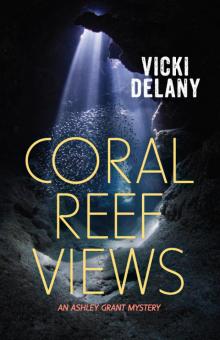 Coral Reef Views
Coral Reef Views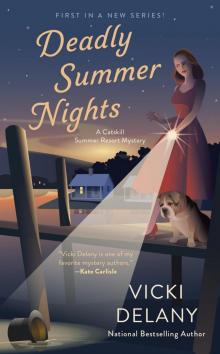 Deadly Summer Nights
Deadly Summer Nights Murder in a Teacup
Murder in a Teacup Whiteout
Whiteout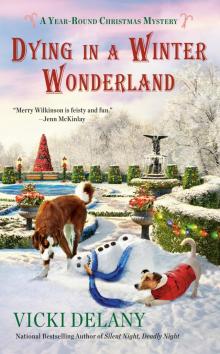 Dying in a Winter Wonderland
Dying in a Winter Wonderland Tea & Treachery
Tea & Treachery Rest Ye Murdered Gentlemen
Rest Ye Murdered Gentlemen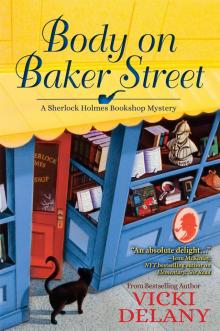 Body on Baker Street: A Sherlock Holmes Bookshop Mystery
Body on Baker Street: A Sherlock Holmes Bookshop Mystery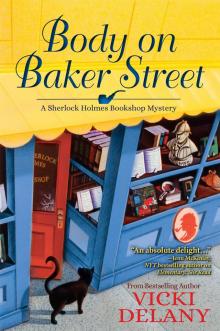 Body on Baker Street
Body on Baker Street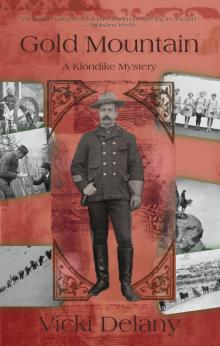 Gold Mountain
Gold Mountain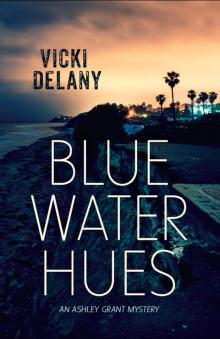 Blue Water Hues
Blue Water Hues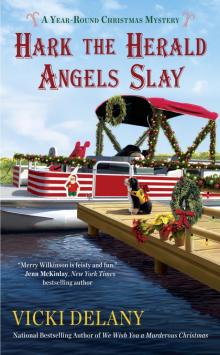 Hark the Herald Angels Slay
Hark the Herald Angels Slay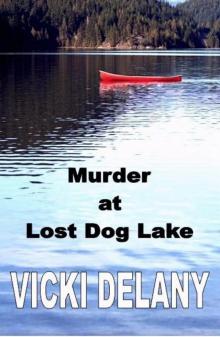 Murder at Lost Dog Lake
Murder at Lost Dog Lake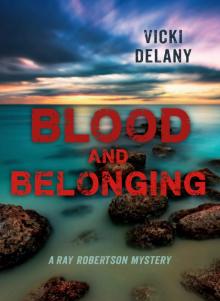 Blood and Belonging
Blood and Belonging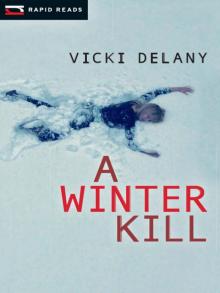 A Winter Kill
A Winter Kill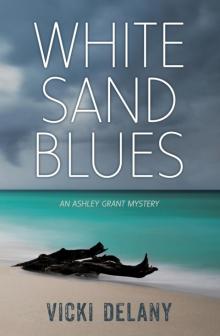 White Sand Blues
White Sand Blues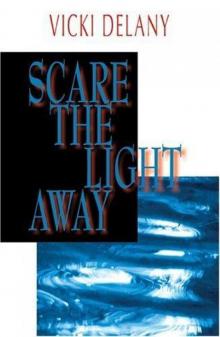 Scare the Light Away
Scare the Light Away Burden of Memory
Burden of Memory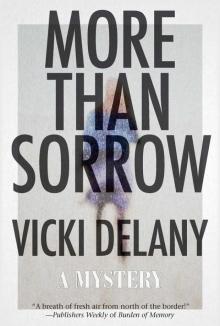 More Than Sorrow
More Than Sorrow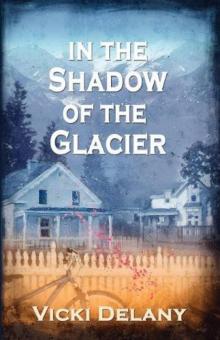 In the Shadow of the Glacier
In the Shadow of the Glacier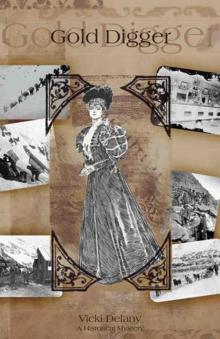 Gold Digger: A Klondike Mystery
Gold Digger: A Klondike Mystery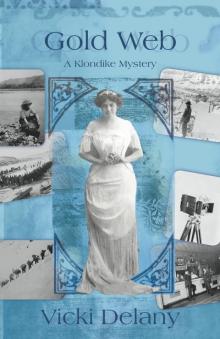 Gold Web
Gold Web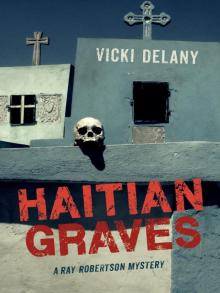 Haitian Graves
Haitian Graves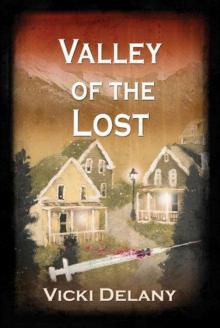 Valley of the Lost
Valley of the Lost We Wish You a Murderous Christmas
We Wish You a Murderous Christmas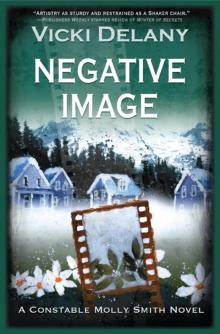 Negative Image
Negative Image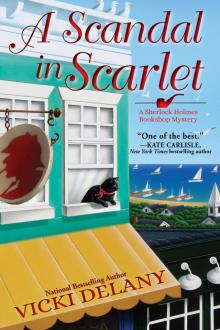 A Scandal in Scarlet
A Scandal in Scarlet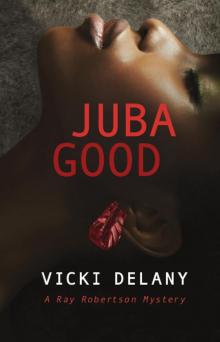 Juba Good
Juba Good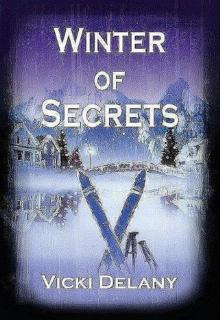 Winter of Secrets
Winter of Secrets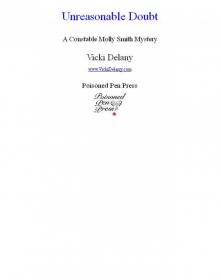 Unreasonable Doubt
Unreasonable Doubt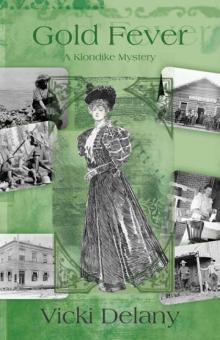 Gold Fever
Gold Fever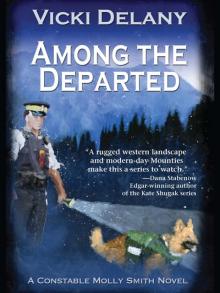 Among the Departed
Among the Departed Elementary, She Read: A Sherlock Holmes Bookshop Mystery
Elementary, She Read: A Sherlock Holmes Bookshop Mystery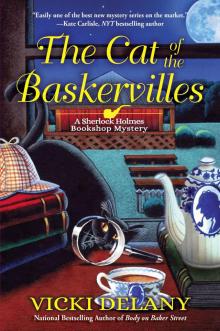 The Cat of the Baskervilles
The Cat of the Baskervilles